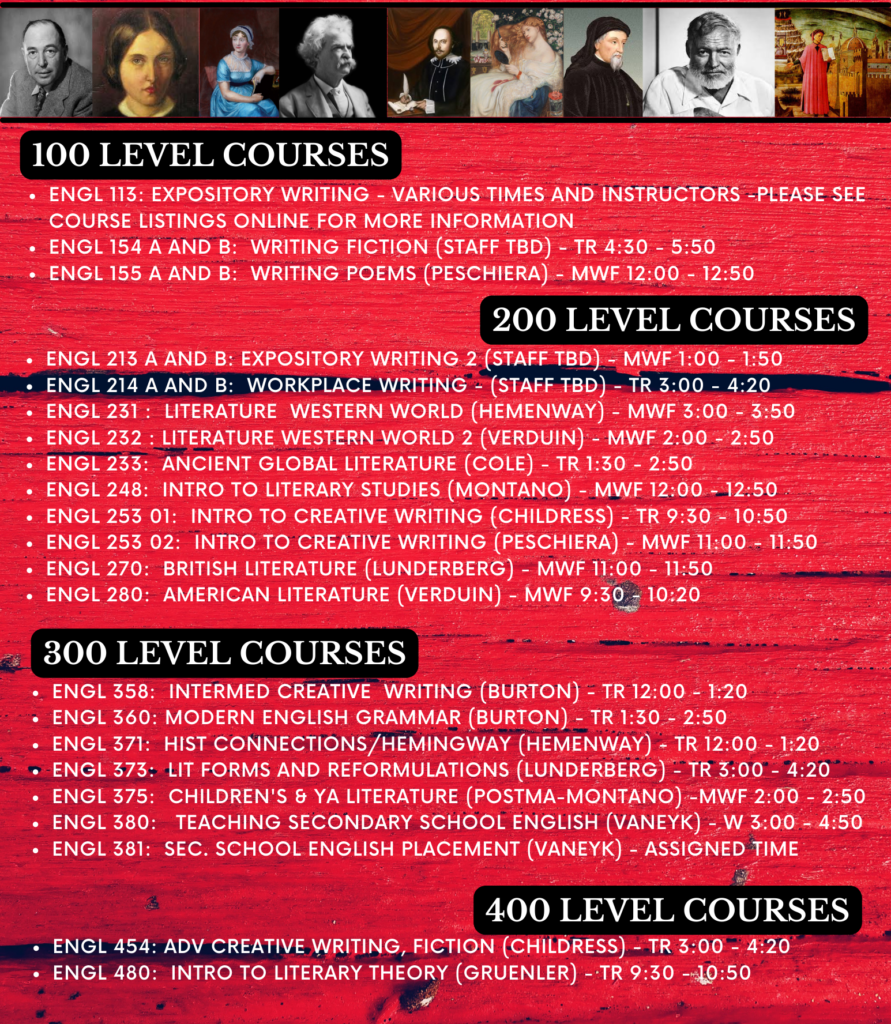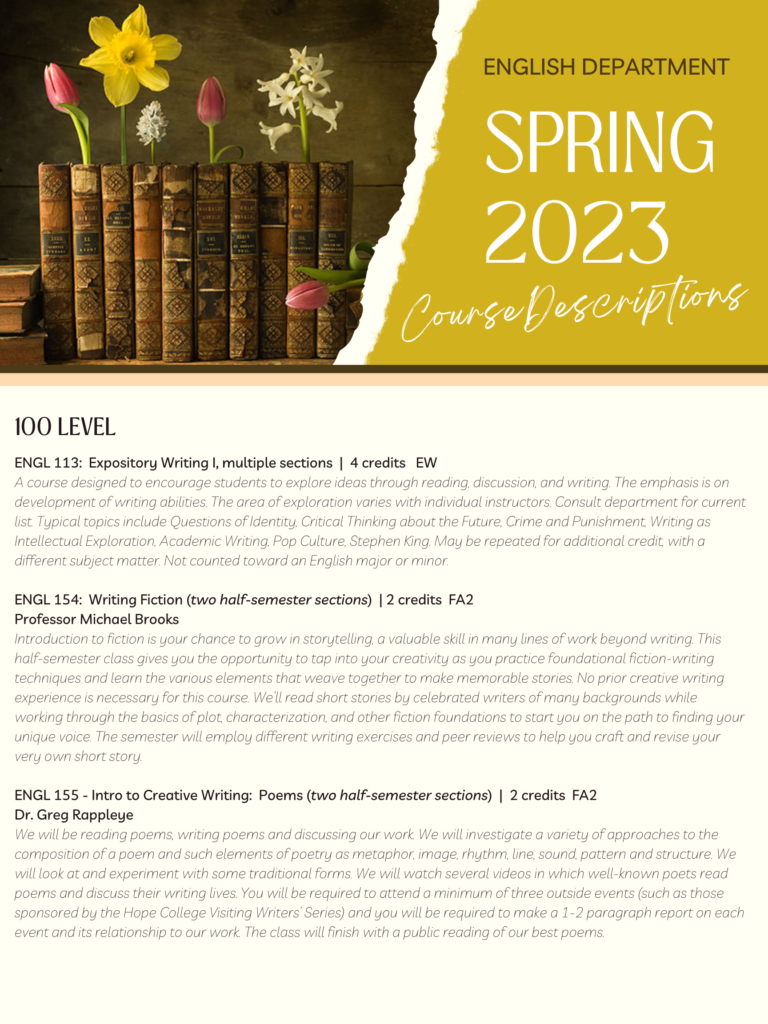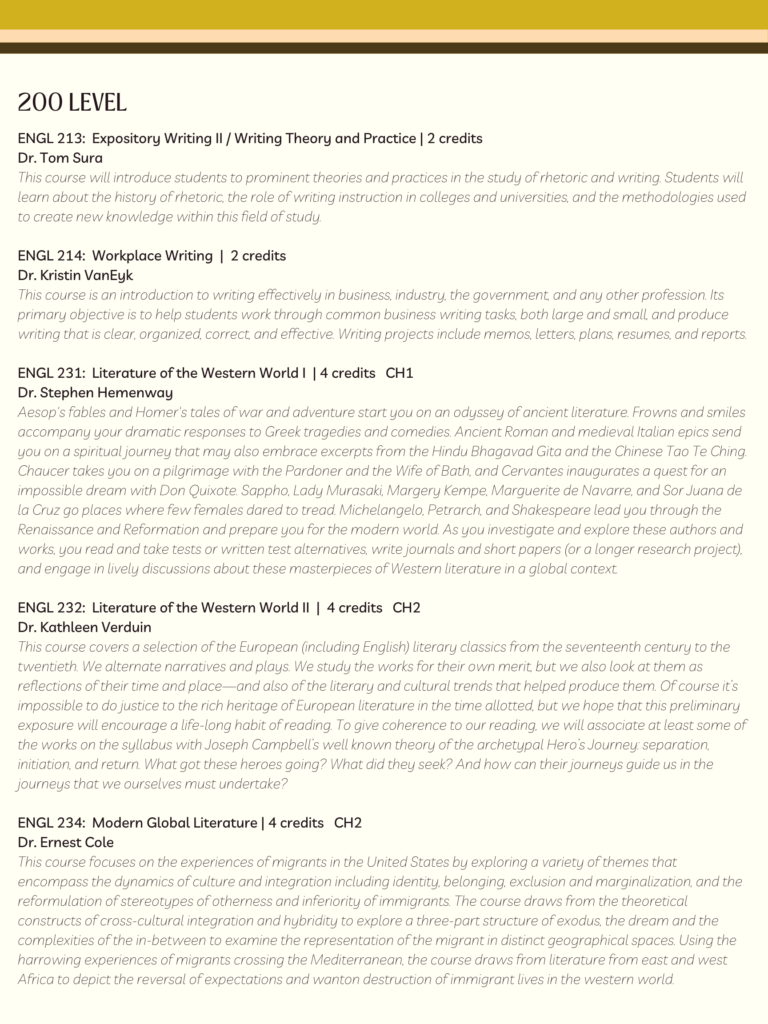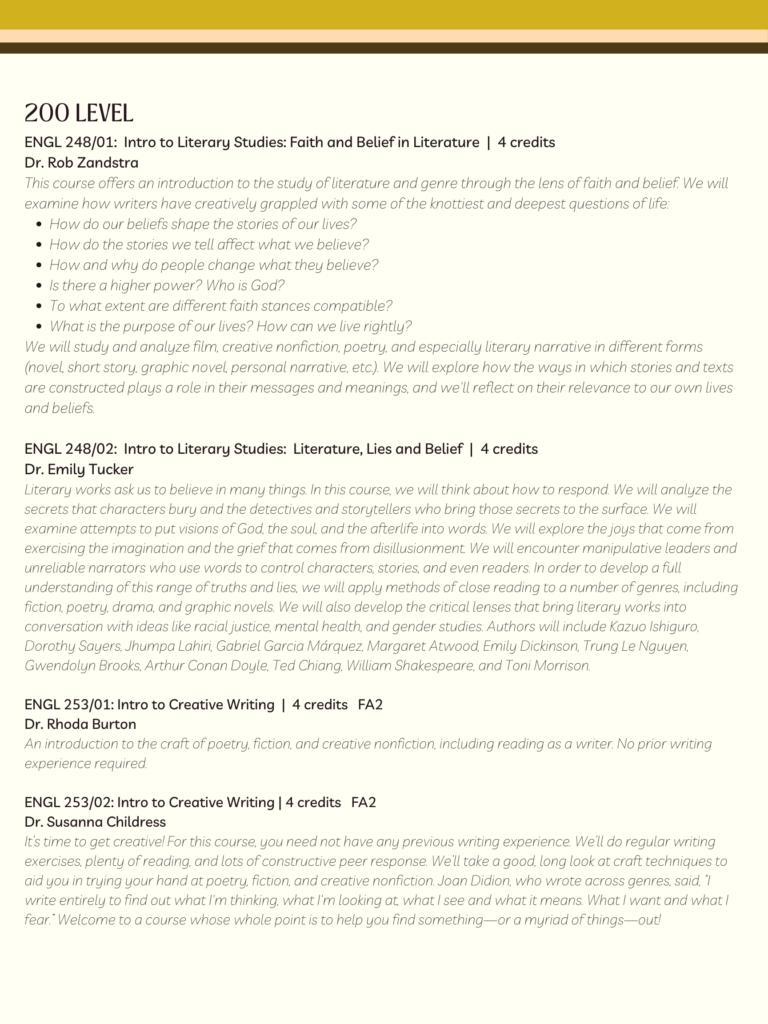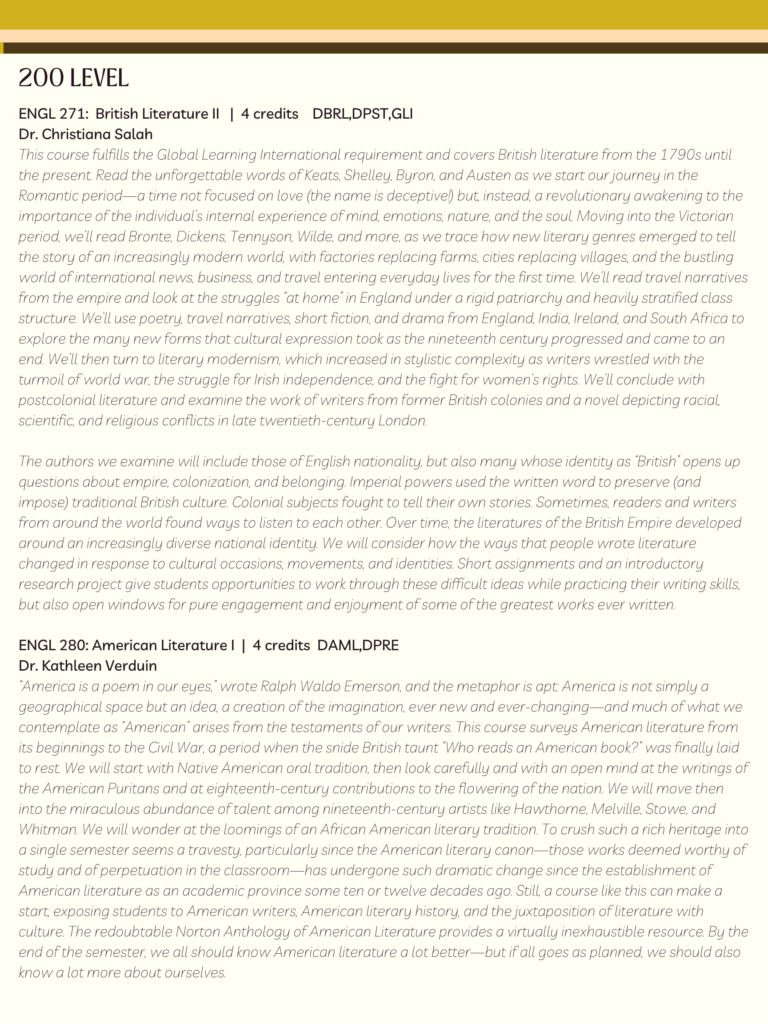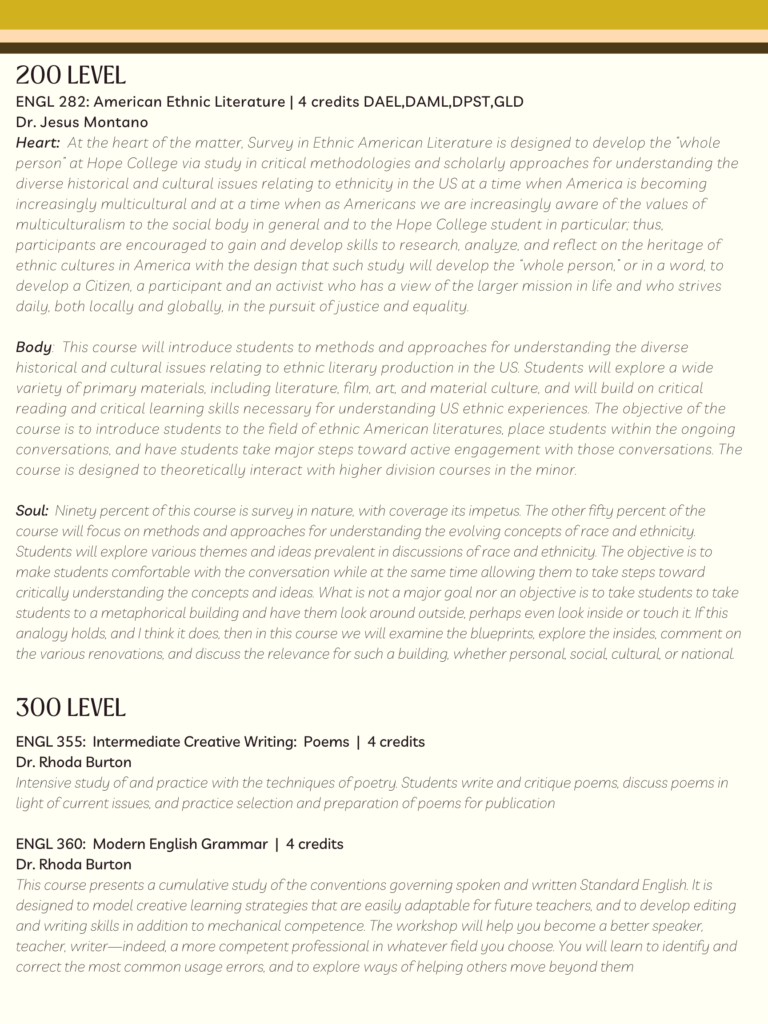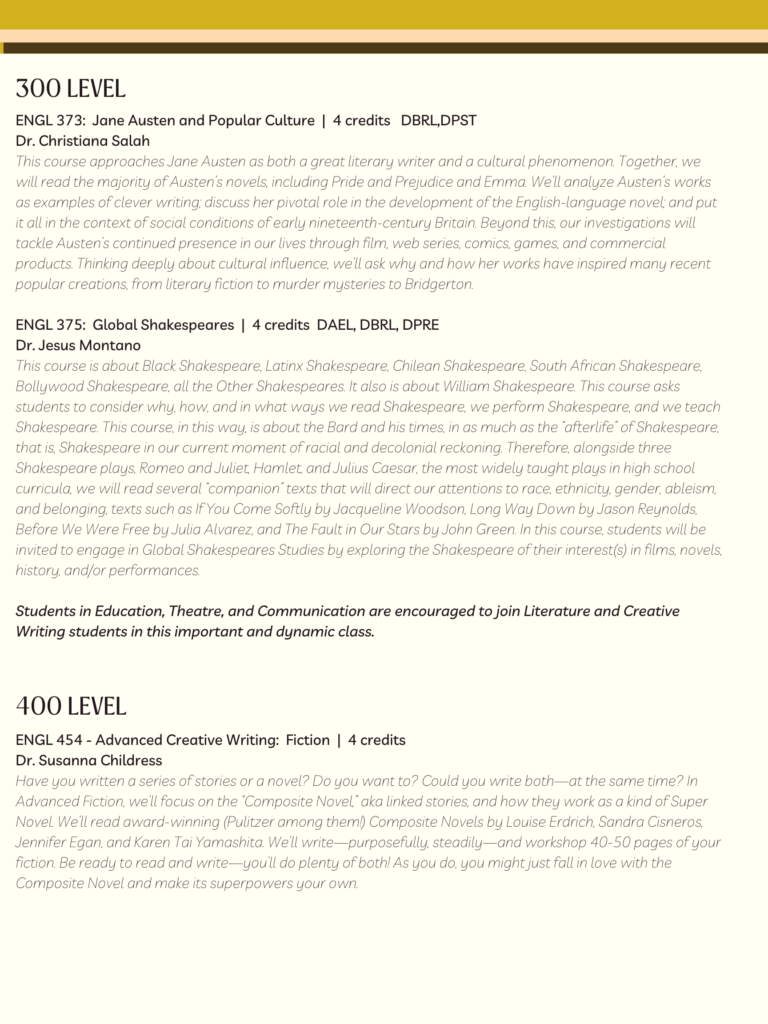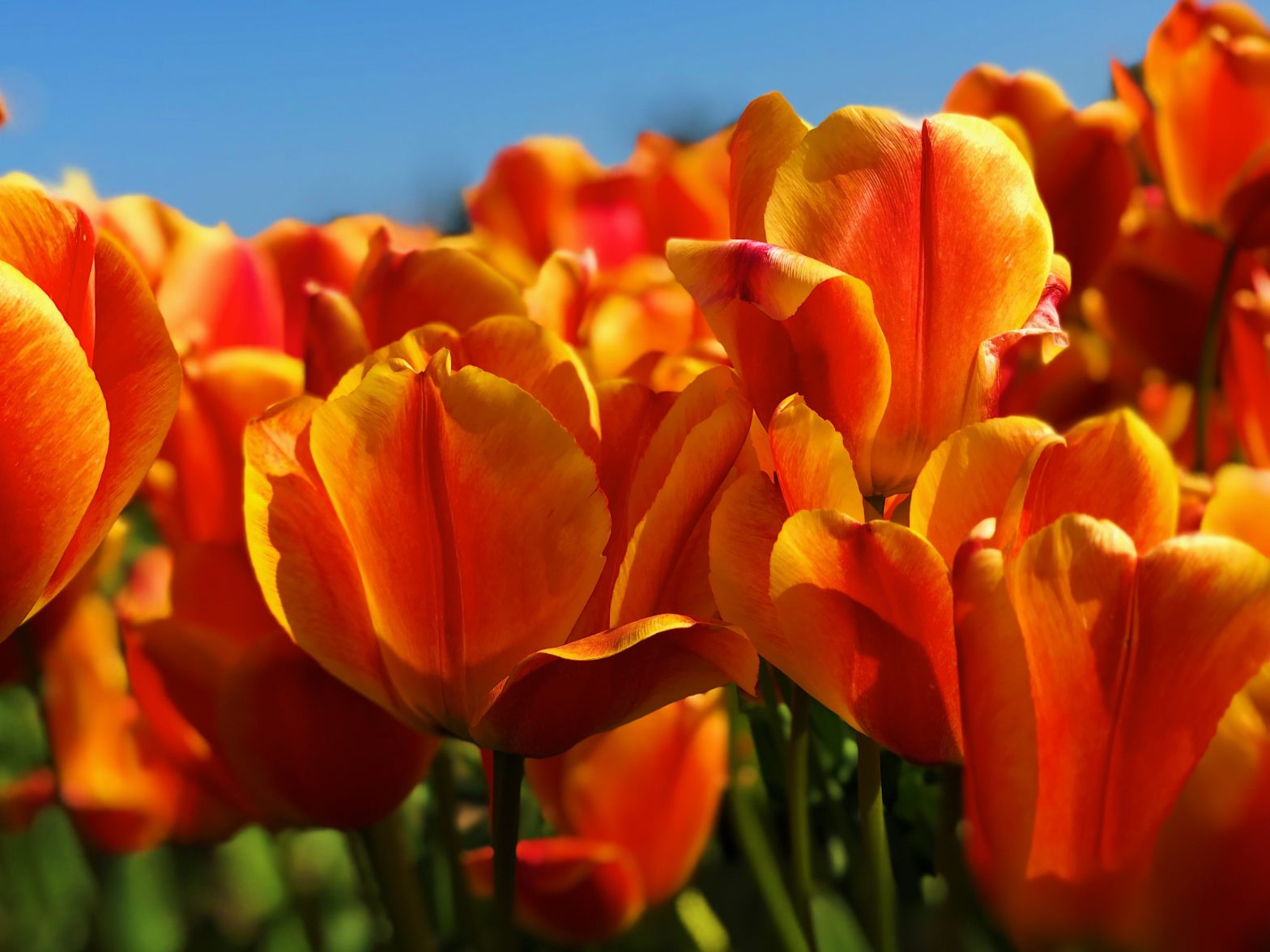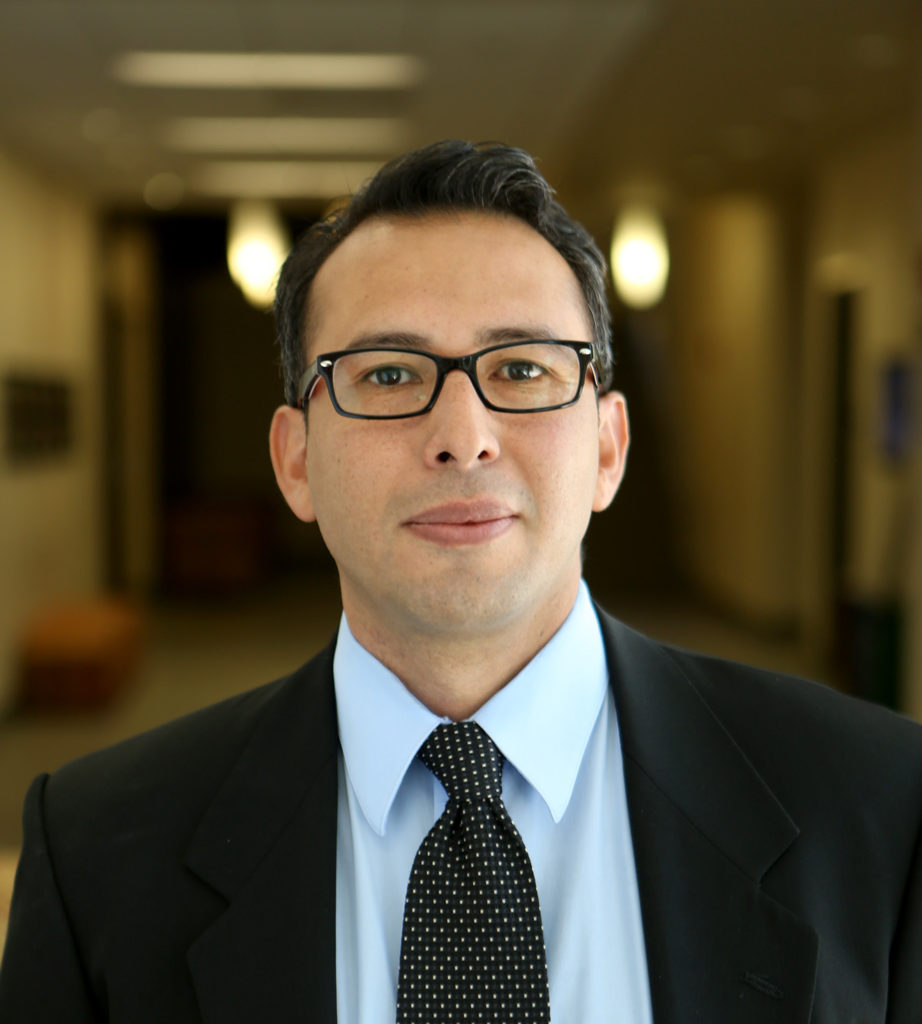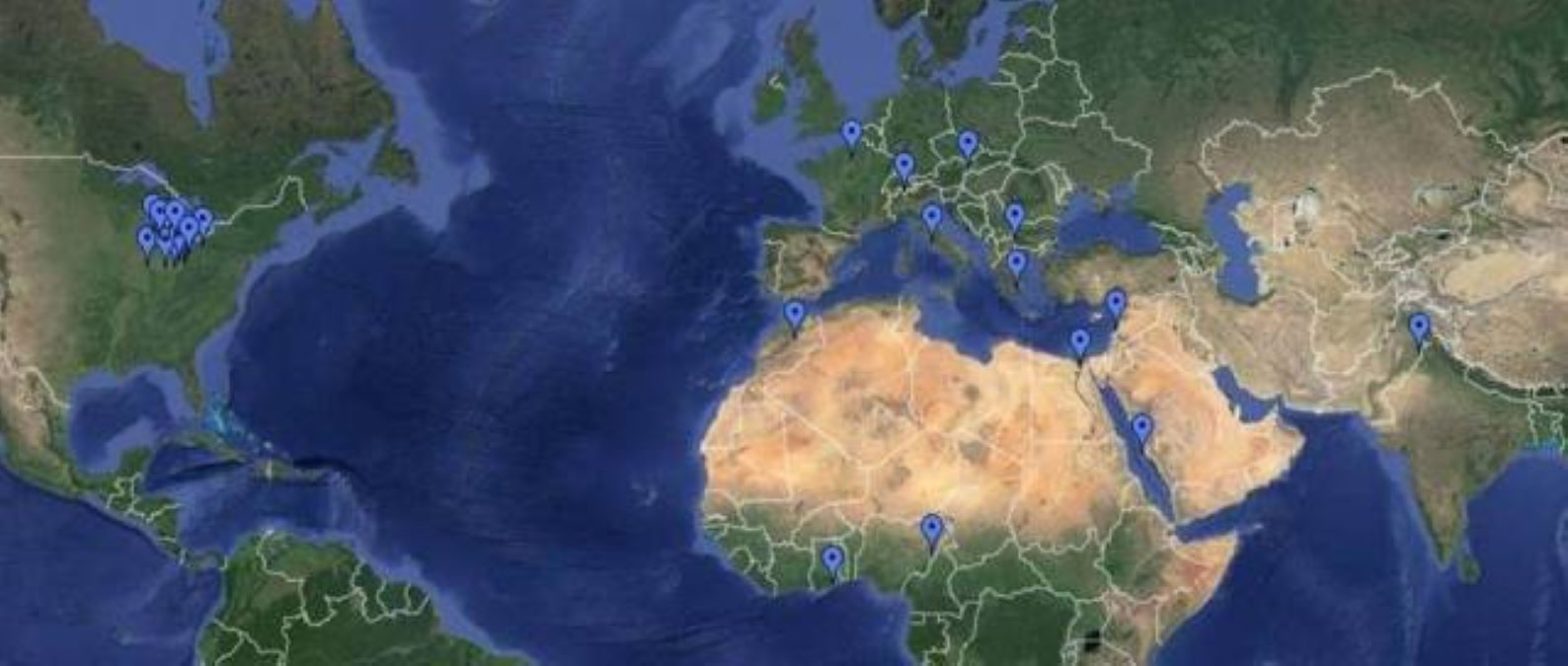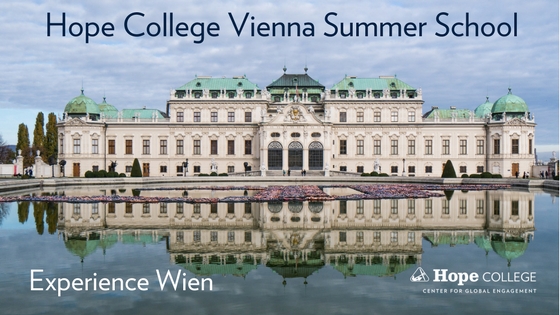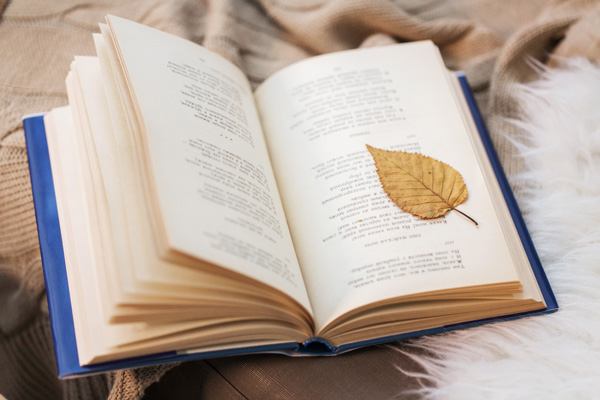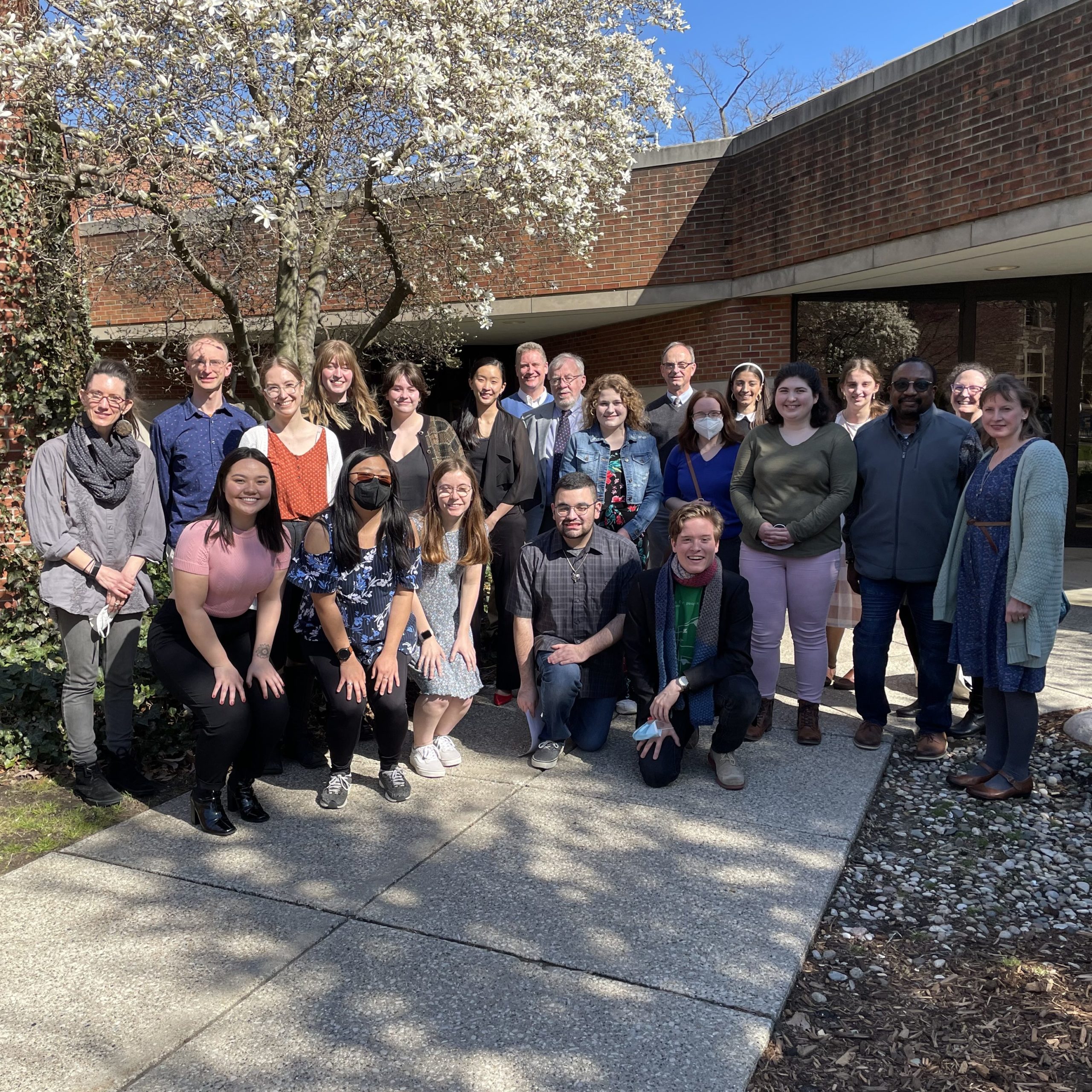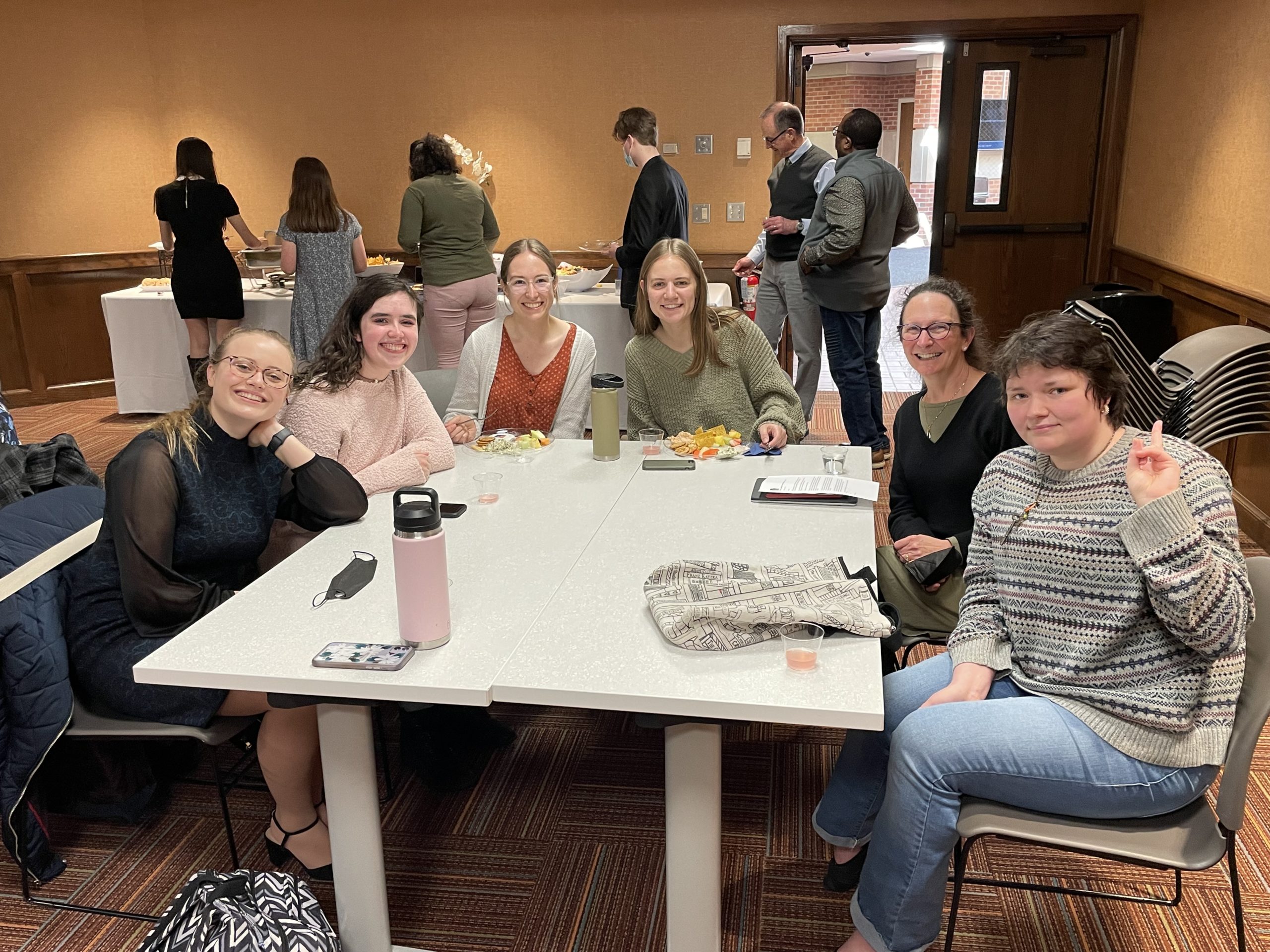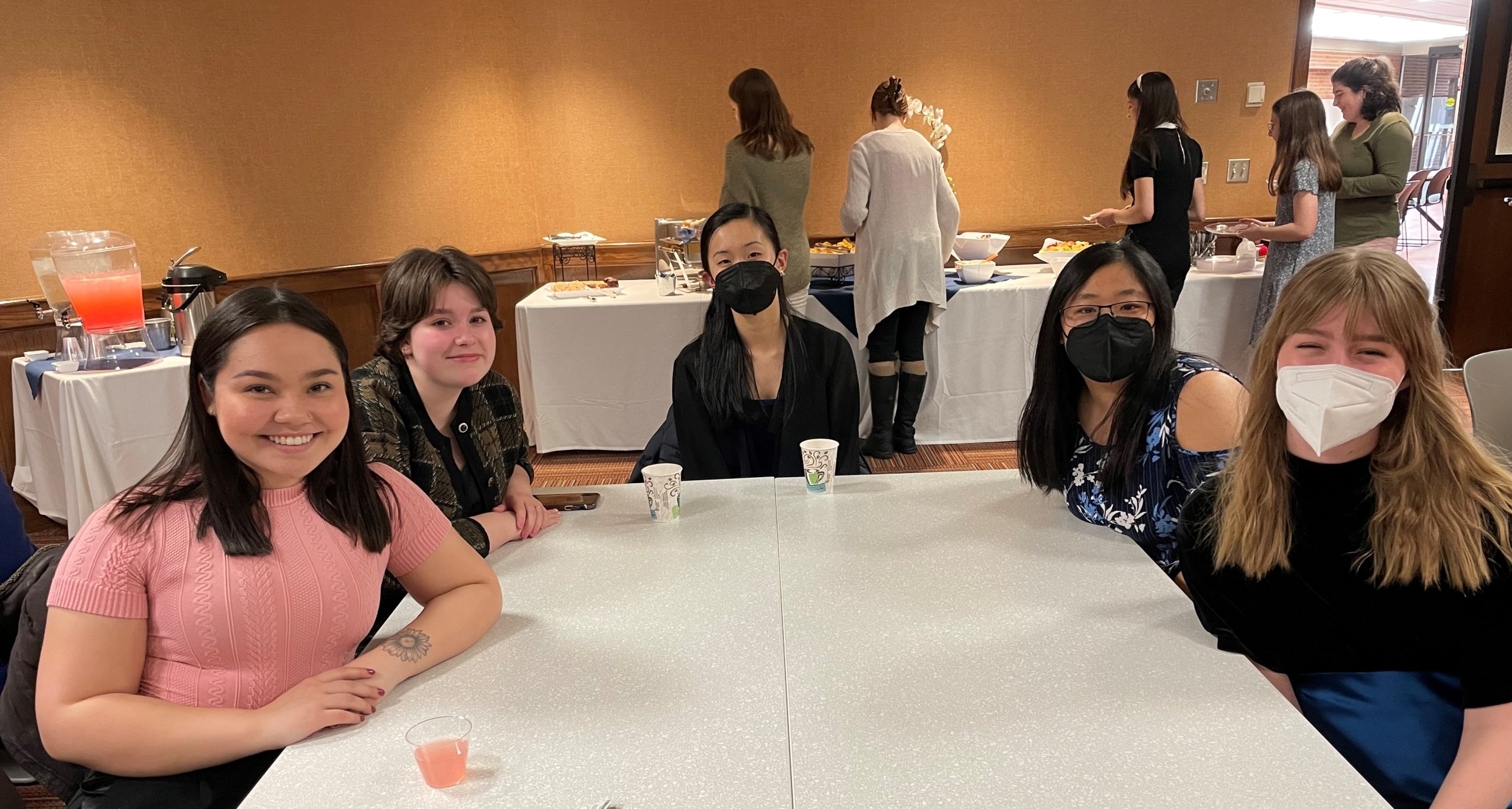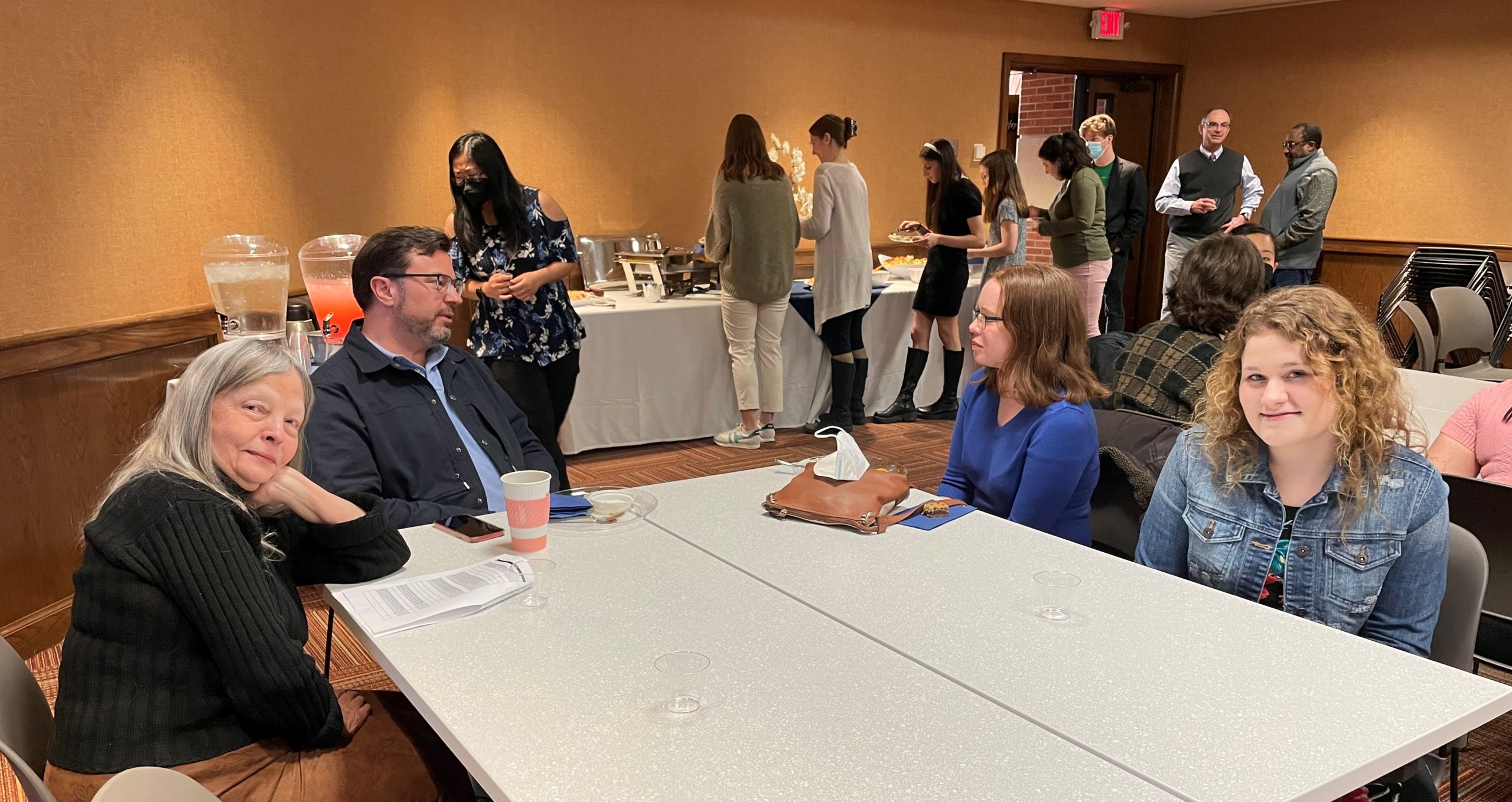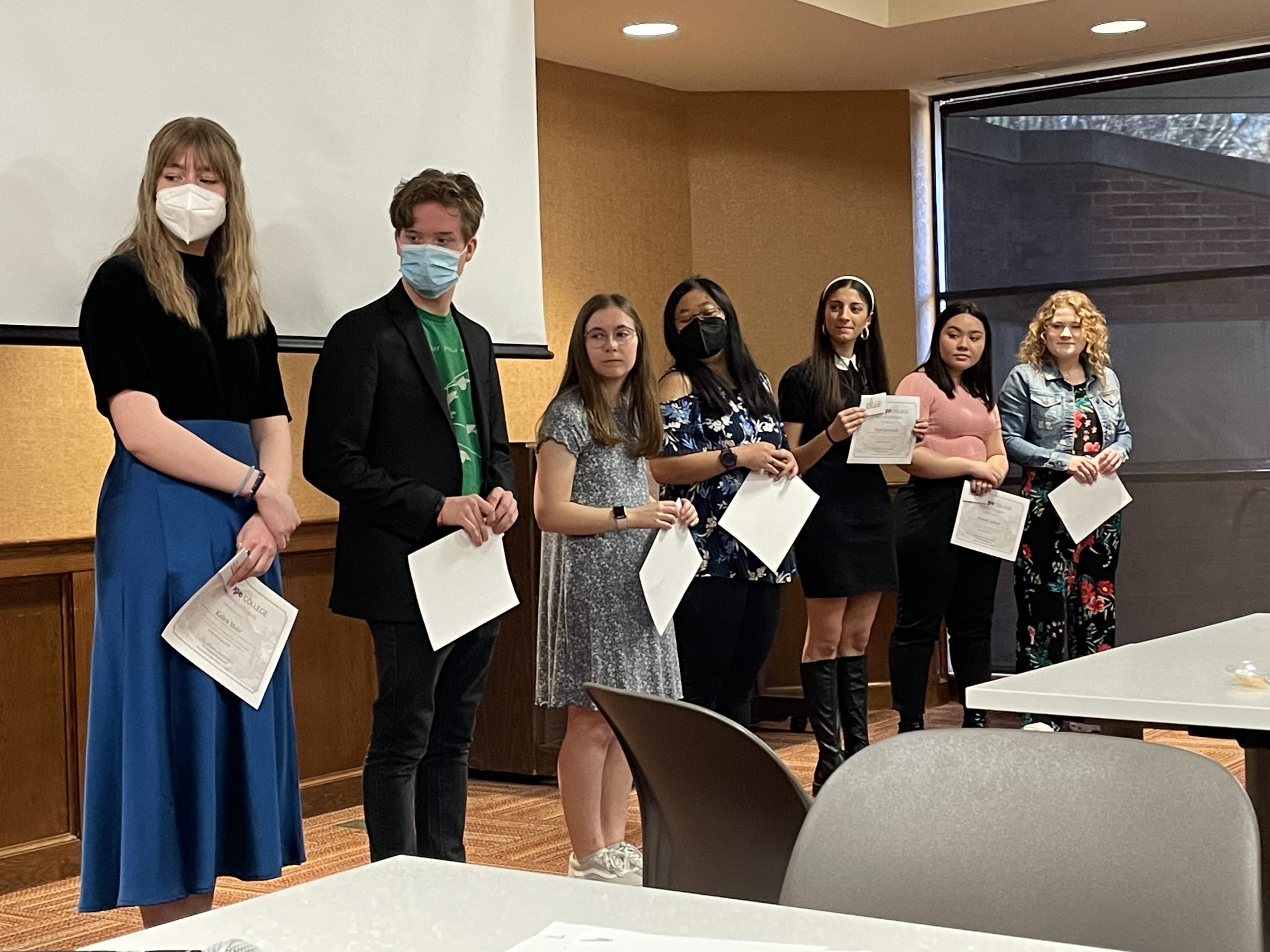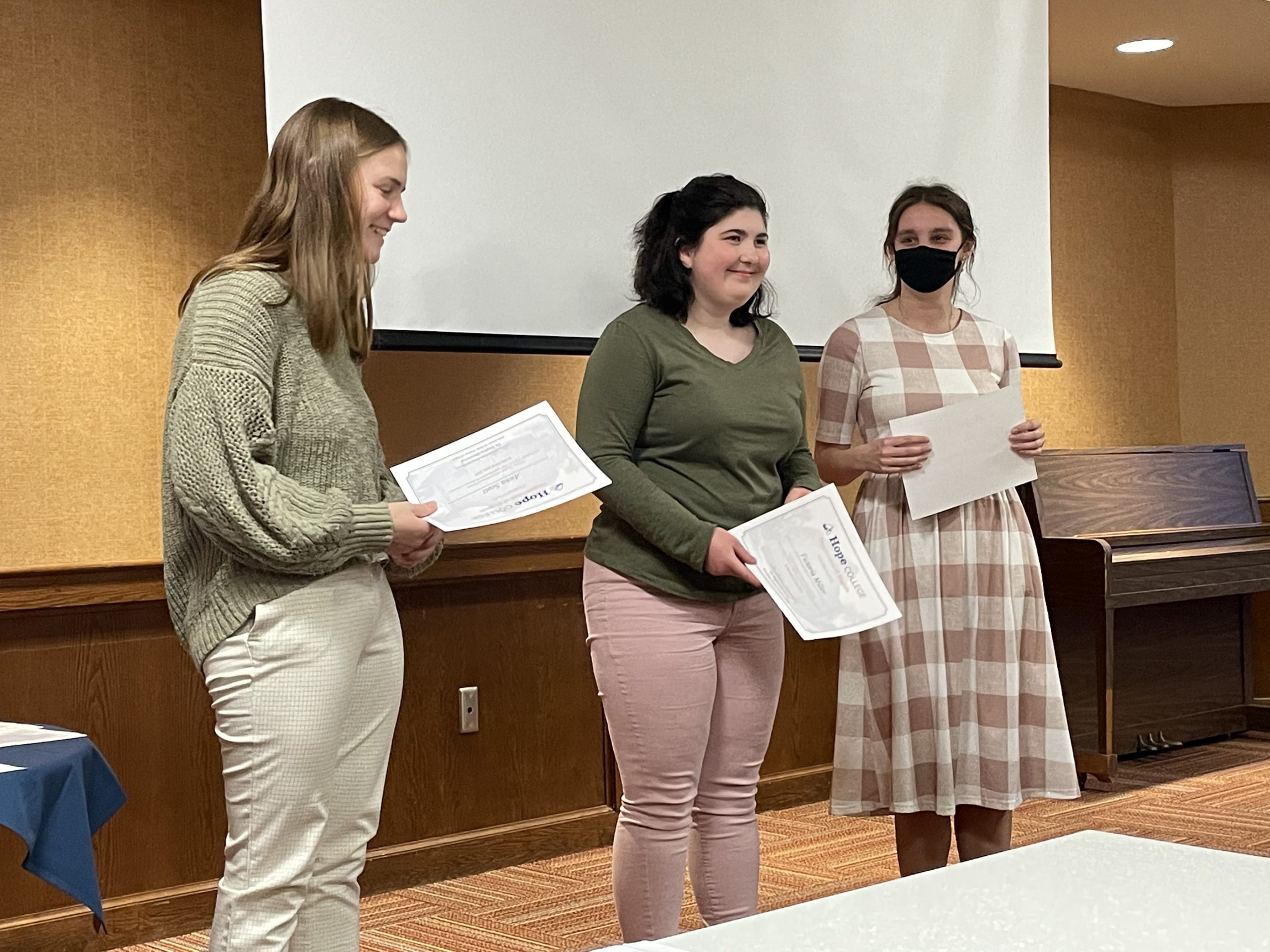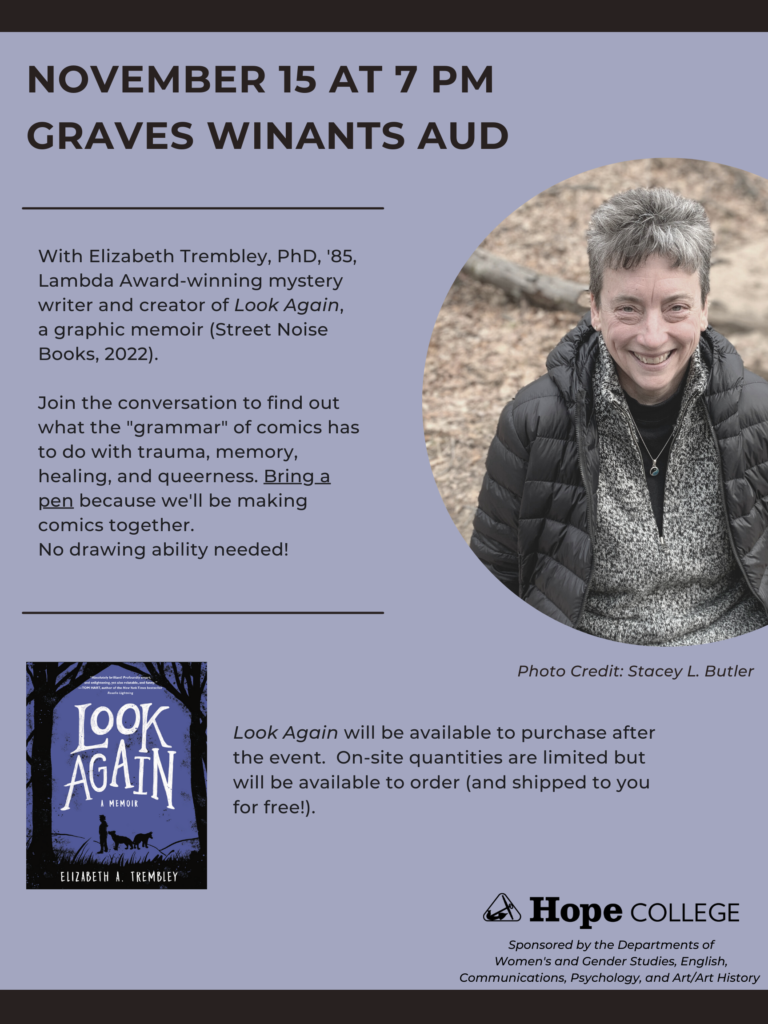
English Department: Spring Course Descriptions
English Department Spring 2023 Course Preview
The time has come: Spring 2023 courses are here!
Registration begins on November 7th
Take a look at our upcoming offerings as you begin to plan. A list of ENGL 113 descriptions can be found on our website. A list of course descriptions can be located here.
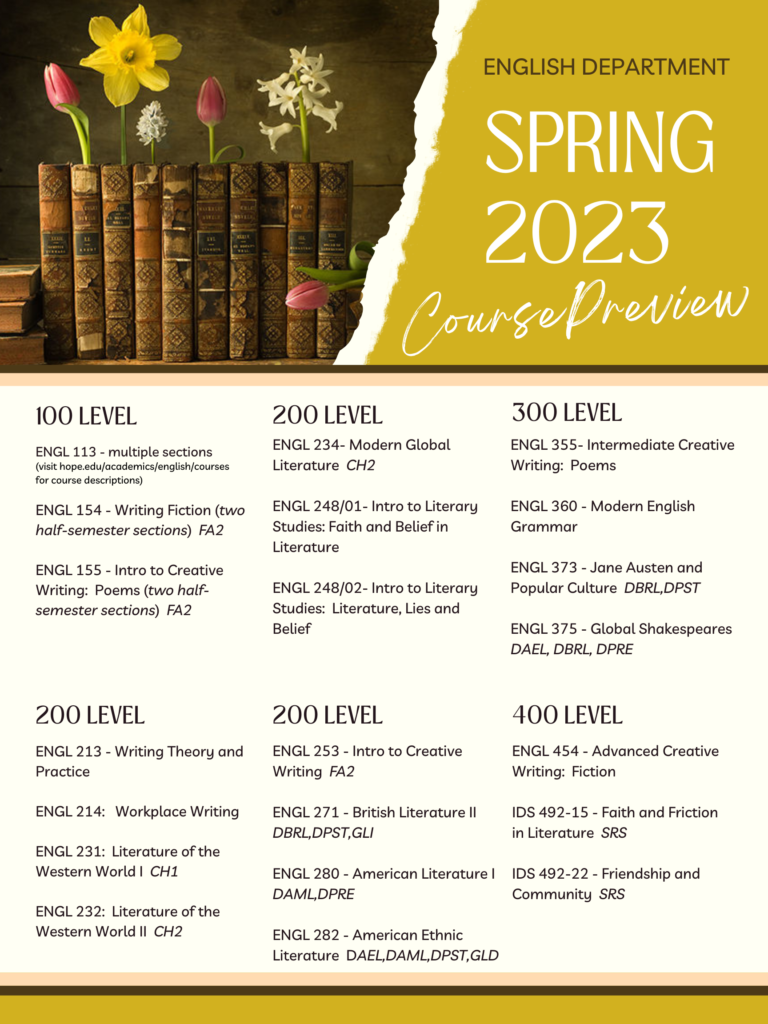
“Shakespeare and Belonging”
Dr. Ruben Espinosa
Thursday, October 6 at 7 pm
Winants Auditorium in Graves Hall
The 2022 Clarence De Graaf Memorial Lecture will feature Dr. Ruben Espinosa, associate professor of English and associate director of the Arizona Center for Medieval and Renaissance Studies at Arizona State University. Professor Espinosa’s address is titled “Shakespeare and Belonging.” The lecture will take place on Thursday, October 6, at 7 p.m. in Winants Auditorium, Graves Hall.
Professor Espinosa holds a Ph.D. from the University of Colorado, Boulder. He is a former Trustee of the Shakespeare Association of America and currently serves on the editorial boards of the Shakespeare Quarterly, Exemplaria and Palgrave’s Early Modern Cultural Studies series.
He is the author of Shakespeare and the Shades of Racism (2021) and Masculinity and Marian Efficacy in Shakespeare’s England (2011). He is also the editor, with David Ruiter, of Shakespeare and Immigration (2014). He is currently at work on his next monograph, Shakespeare on the Border: Language, Legitimacy, and La Frontera.
By critically examining the intersections of Shakespeare and Latinx culture in film, media, fiction, social networks, localized adaptations and other forms of popular culture, Professor Espinosa’s presentation will explore how perceptions of legitimacy for U.S. Latinxs often influence the barriers and bridges that define their encounters with Shakespeare. A move toward the U.S.-Mexico border allows for underrepresented perspectives in the ongoing making of Shakespeare through varied discussions of national and linguistic identity, race, ethnicity, gender, economics, ethics, citizenship, assimilation, legitimacy and legacy.
Shakespeare and the Shades of Racism has been described as “a deeply humane and incisive rebuttal to the whitewashed, socially conscious Shakespeare projects popular within the Shakespeare industry” and a book that focuses on “the uneasy relation between our current social ills and those that Shakespeare depicts.”
ABOUT THE LECTURE SERIES
We thank his daughter Ruth De Graaf Dirkse and his son-in-law Lamont Dirkse, and the rest of Dr. De Graaf’s family, for this gift. Over the years the De Graaf lecture has brought us a procession of luminaries. It was initiated by Thomas Werge of Notre Dame, who had been one of Dr. De Graaf’s students; since then we have been privileged to hear from such admired scholars as Lawrence Buell, V. A. Kolve, Jane Tompkins, Suresh Canagarajah, Anne Curzan and Syl Cheney-Coker.
English Department Faculty Make Global Connections
Students in some Hope College English courses have the opportunity to study at other colleges around the world without leaving Hope’s campus. Four members of the English department faculty have developed courses in the Global Course Connections program of the Global Liberal Arts Alliance (GLAA).
In globally connected courses, a Hope professor works with a professor at one of the colleges in the GLAA to create links between two similar courses. Connections may involve activities such group projects between students at both campuses, synchronous class sessions by videoconference, or shared discussion forums. Two new connected courses will be taught in the English department this coming fall.
Department chairperson Dr. Ernest Cole is Hope’s pioneer professor of globally connected courses, having taught five of them. All have been versions of English 234, Modern Global Literature, with different themes and global collaborators:
- “Global Literature and the Environment: African and Indian Literature” with Ashutosh Potdar, FLAME University, India
- “African Literature and Mental Health: Postcolonialism as Nervous Condition” with Jams Hodapp, American University of Beirut, Lebanon
- “Global Literature and Trauma: African and Indigenous American Literature” with Adam Waterman, American University of Beirut
- “Mental Health, Trauma, and Disability in African and Latinx Literature” with Sara Newman, Universidad San Francisco de Quito, Ecuador.
- “The Stories We Tell: Trauma and Disability from a Literary & Psychological Perspective” with Sara Newman, Universidad San Francisco de Quito and Erin Henshaw, Denison University, Ohio
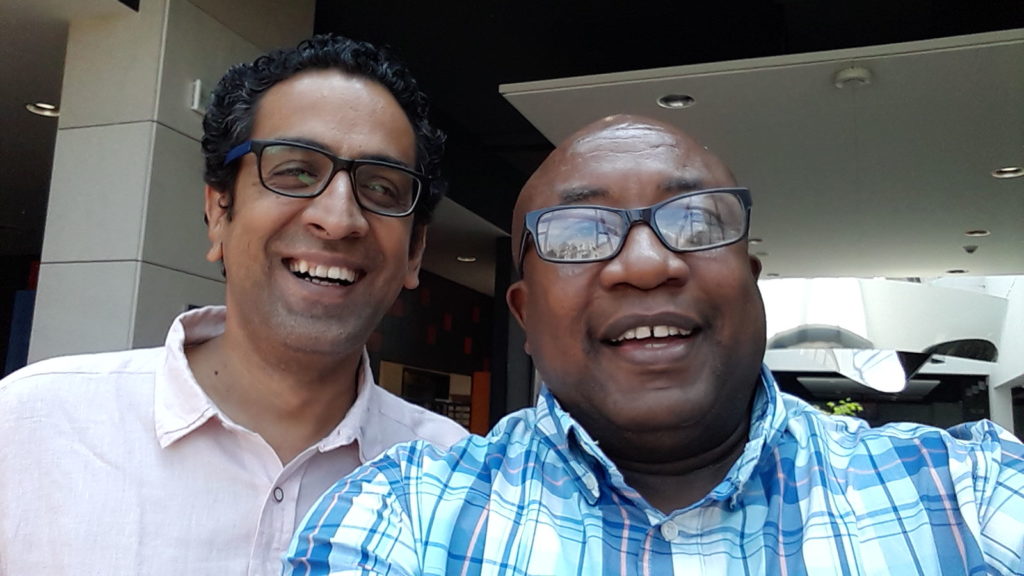
This past spring, Dr. Pablo Peschiera connected his section of English 253, Introduction to Creative Writing, with a first-year writing course at American University of Nigeria. “My students quickly noticed their similarities to the Nigerian students in terms of goals, family dynamics, friendships, and etc.,” said Peschiera. “But, more importantly, they felt they had a window into a different culture, with significantly different challenges and customs.”
This coming fall, two more faculty members will offer globally connected courses. Dr. Kristin VanEyk will connect her English 113, Expository Writing on “Language and Culture” with another first-year writing course at American University of Nigeria, taught by Emilienne Akpan. Dr. Curtis Gruenler’s English 480, Introduction to Literary Theory, will be connected to a similar course at Forman Christian College in Lahore, Pakistan.
Both VanEyk and Gruenler participated in a three-day workshop in June at The American University of Paris, where they had the opportunity to meet with their collaborators. VanEyk said she was grateful for the opportunity to meet Akpan in person after so many email exchanges, and that the in-person connection helped their collaboration. “My course partner Emilienne and I connected as both colleagues and friends. Through our many emails back and forth and our opportunity to work together on a project, we were able to experience a little bit of what our students will experience,” said VanEyk. “The workshop also created space for a rich dialogue about shared values and experiences across the many global sites.”
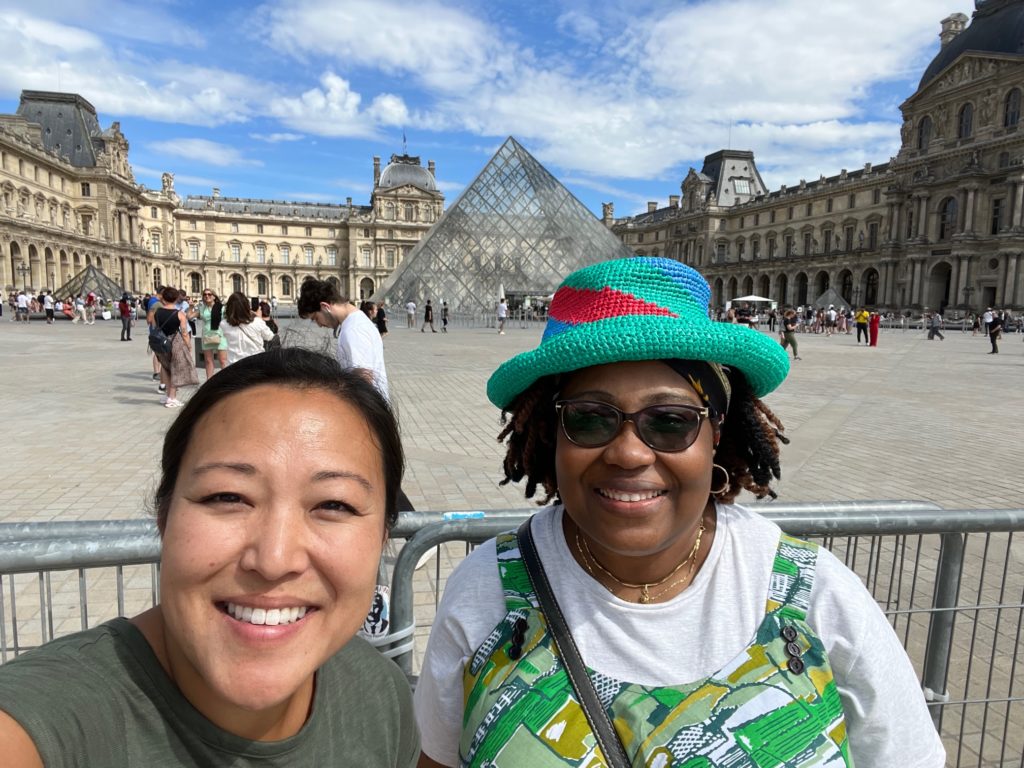
Said Gruenler, “I felt like my collaborator, Dr. Qurratulaen Liaqat, and I really hit it off. We are excited for the conversations our students will have with each other on topics like feminism and post-colonial studies.” The two courses will connect primarily during a five-week period in the middle of the semester for both schools, which start a month apart. “Plus,” added Gruenler, “one of our assignments for the workshop was a brief field experience relevant to our connected courses, so we went to the Louvre, since literary theory applies also to visual art and neither of us had ever been there. We got to share with each other from our own areas of expertise, like Islamic art for her and medieval art for me.”
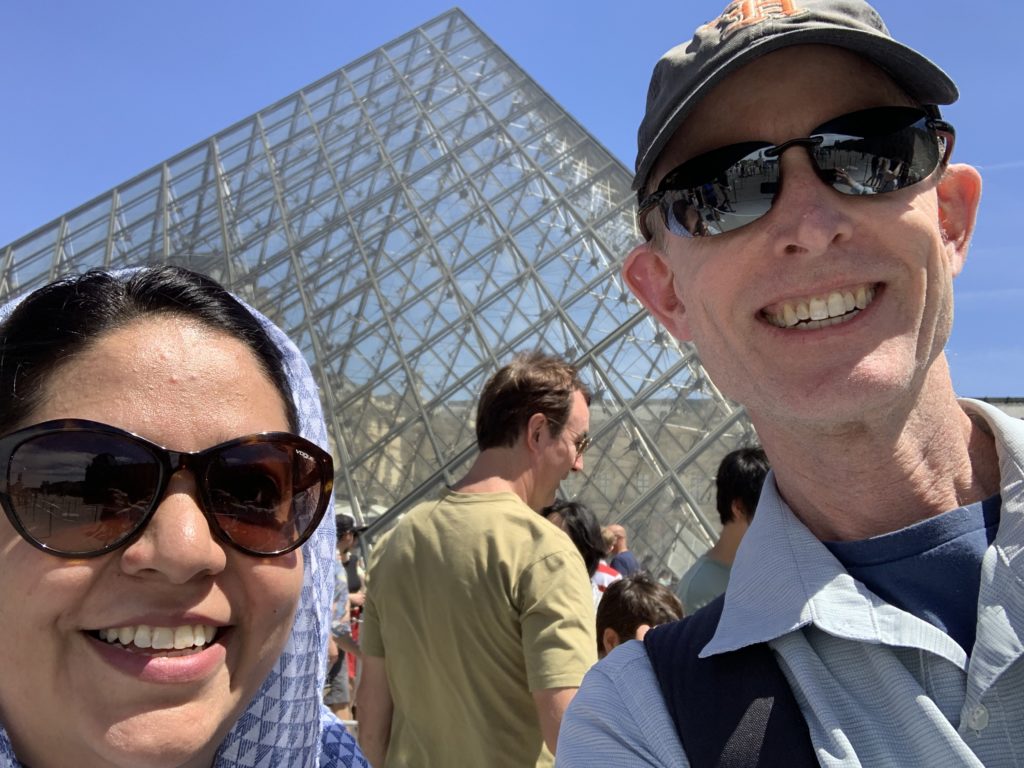
One of the leaders of the workshop was Dierdre Johnston, a recently retired member of Hope’s Department of Communications. She and her co-leader from Kenyon College, Irene López, recently published a book based on their experiences with the Global Course Connections program, The Wiley Handbook of Collaborative Online Learning and Global Engagement.
Vienna Summer School Back in Session
After a two-year hiatus due to COVID, Hope College’s Vienna Summer School is back in session!
Dr. Stephen Hemenway and Dr. Marla Lunderberg, both from the English Department, left with their students for Austria on Tuesday. Students will be studying at the Austro-American Institute Vienna and living with host families in the area. Dr. Janis Gibbs from the Hope College History Department will be joining Dr. Hemenway at the end of this month to teach during the June Term session.
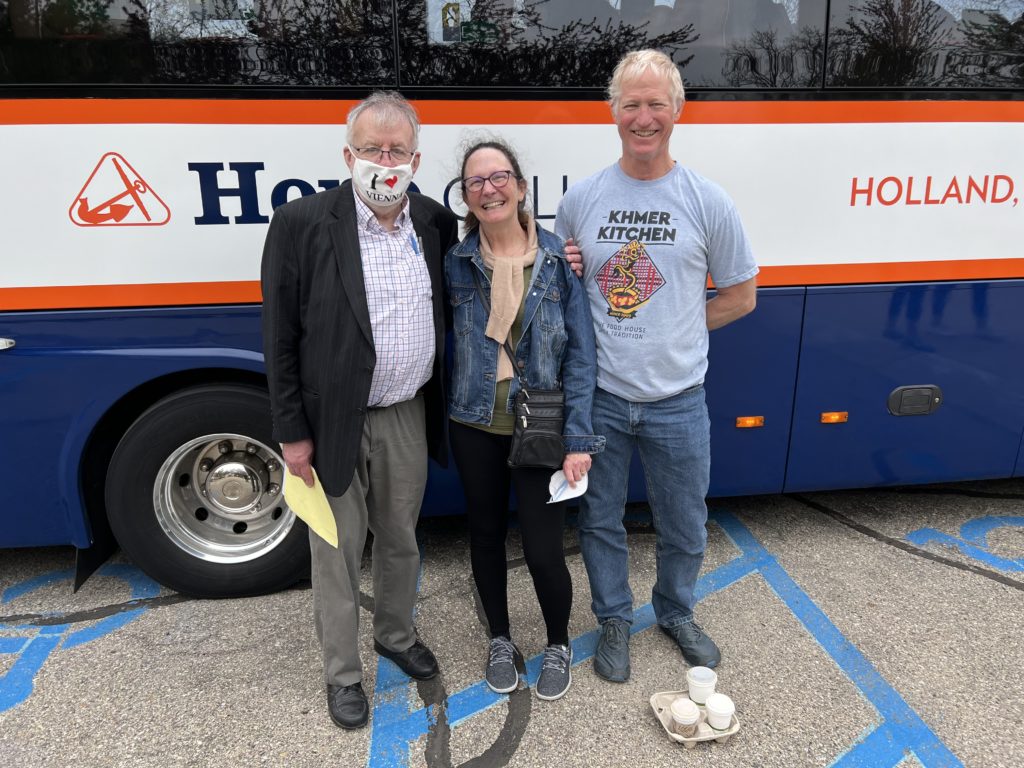
About the program
This summer’s two sessions (May, June) offer eight college credits(four each session) in numerous academic fields: Austrian Art and Architecture, Modern Austrian History, Empires of the World and Mind, Vienna’s Musical Traditions, Economic/Business Issues in Europe, and a Senior Seminar (Vienna: Values in Transit). Field trips within Austria and excursions to neighboring countries add a significant dimension to the learning experience. The program, open to qualified applicants of any age who have completed at least one year of college before summer 2022, has a maximum of 40 students per session. Minimum grade point average for acceptance is usually around 3.00. A student on disciplinary probation will need clearance for eligibility.
Vienna features everything from famous choirboys to fabled coffeehouses, from Sachertortes to the Spanish Riding School, from baroque churches to a modern United Nations complex. While in Vienna, art/architecture students explore museums and churches; students in history and “Empires” courses, visit Habsburg residences and World War sites; music students attend operas and concerts; economics students meet with business experts; senior seminar students question distinguished speakers daily. Several of these opportunities are available to all participants, and the cost of required field trips is included. Non-credit German-conversation classes meet a few afternoons each week. Beginners find these survival sessions beneficial, while those with German abilities gain more confidence.
On weekends, Dr. Hemenway, who has led the Vienna Summer School since 1976, arranges and leads excursions to places outside of Vienna. Plans for first session include a three-day orientation in Moerbisch am See (Austria) and three-day weekends in Salzburg (Austria) and Prague (Czech Republic). Second session features a three-day weekend in Budapest (Hungary), an overnight hiking trip in the Austrian Alps, and a weekday in Bratislava (Slovakia). Since weekend trips are considered part of the academic program, costs of transportation, hotels, guides, admissions, breakfasts, and dinners are included in the overall price for the program.
Interested? Please contact the Hope College Off-Campus Study Program for more information.
2022 Academy of American Poets Prize
About the Prize
The Hope College Academy of American Poets (AAP) Prize award is funded by the University and College Poetry Prize program of the AAP. The academy began the program in 1955 at 10 schools, and now sponsors nearly 200 annual prizes for poetry at colleges and universities nationwide. Poets honored through the program have included Mark Doty, Louise Gluck, Joy Harjo, Robert Hass, Robert Pinsky, Sylvia Plath, Gjertrud Schnackenberg, and Charles Wright. The winning poet receives $100 from the Academy of American Poets.
About the Judge
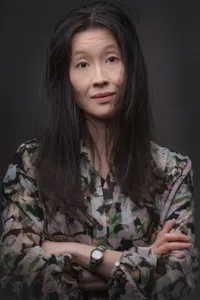
Our 2022 Judge is the poet, Miho Nonaka. who is a native of Tokyo and a bilingual poet/translator. She is the author of a poetry collection, The Museum of Small Bones. Besides poetry of all kinds, her interests include lyric essay, memoir, Japanese literature, surrealism, and modern European literature. Her scholarly research focuses on 20th century Japanese literature, including Arechi, Tamura Ryūichi, the effects of Emily Dickinson’s poetry in Japanese translation, Endō Shūsaku’s vision of the Church beyond the east-west divide, and Murakami Haruki’s fiction and magical realism.
Winner of the 2022 Academy of American Poets Prize:
Fara Ling
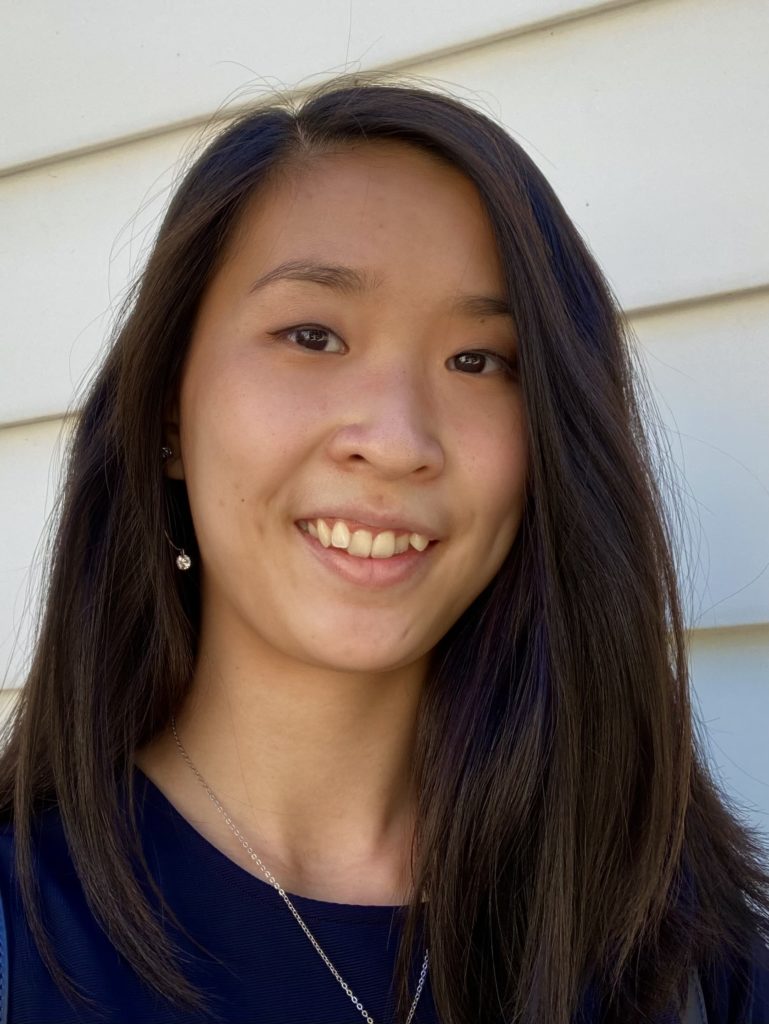
Best of Everything
I last saw my Si Kor Poh
standing knee-deep in the drain,
throwing scoopfuls of a dull yellow liquid
from a bucket onto her Chinese kale.
When my dad parked
she walked slowly out to us,
pail of urine in her right hand and plastic bottle scoop in her left,
legs bowed away from each other,
bones built without milk
over a childhood of battling with ten siblings
for mackerel heads and chicken feet.
She held the pail away from us,
sat on the two-foot high wall,
wiped her fingers on her shorts.
I wish you – best of everything,
she said.
She cradled her fingers in her lap,
root-shaped fingers the color of fried bamboo shoots
she cooked for us several Chinese New Years ago.
Last night, like last year, we ate at a restaurant –
she’s on the wrong side of eighty with
too many relatives to cook for.
She had worn a hairpiece and thick-soled teacher’s shoes.
Lu m’tang go all the way there dui lai with an ang mor boyfriend ah,
she warned,
no coming back with a white boyfriend.
Don’t forget us.
*Si Kor Poh refers to one’s paternal grandfather’s fourth sister
Judge’s comments
At a meditative pace and through carefully chosen details, this poem takes us to another world and lets us meet the speaker’s Si Kor Poh (paternal grandfather’s fourth sister), a woman of remarkable strength and fortitude, who wishes others the “best of everything” she herself lacked in her hard life. This is a deftly crafted poem, and its power lies not only in being a vivid homage to Si Kor Poh, but also in illuminating the emotional complexity of the speaker who must navigate between multiple realms (lands, races, cultures and generations) while being powerfully pulled by the ancestral call of “Don’t forget us.”
Honorable Mention for the 2022 Academy of American Poets Prize:
Eileen Ellis
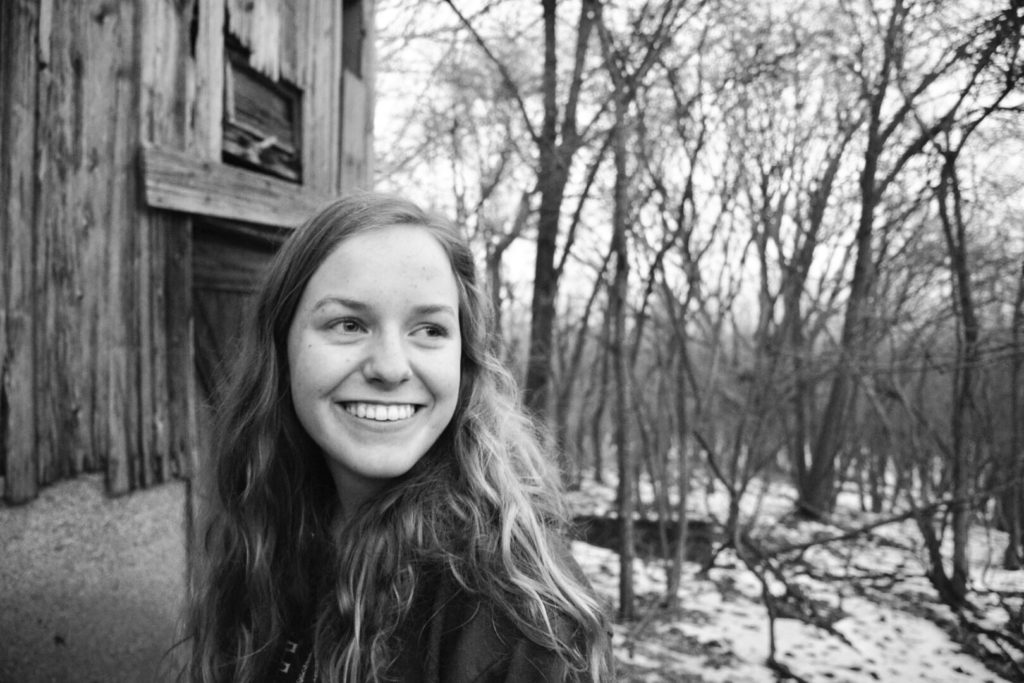
You Said You Were Born to Be a Writer
In that life, you were a moth –
nothing pretty like those lime green luna moths
with their tapered wingtips and twisted tails and mouths
that somewhere along the way ceased to exist. No –
you were a brown moth, you said. An American dagger moth,
wings dripping with rows of thin black blades, mouth
left hanging open to swallow and spit out words.
No moth is ever born to be a moth
though you said you were. Maybe you just believed
you weren’t born to do anything else – your moth-hood
was merely imitation passion pushed into absence like grout,
left to fill the hollows between tiles made of prematurely cracked cocoons
and left sticky with caterpillar soup – enzymes left over,
you explained, from larvae unable to ever finish digesting
themselves. In that life, you were funny in a way that made people
sorry for you. You ventured that a chrysalis cracked in two before a caterpillar
could finish its self-dinner was not unlike a chicken egg cracked in two –
but instead of a puddle of thick, translucent egg goop,
a day 13 embryo curved like an overcooked shrimp plops
onto the buttered pan, and blood and amniotic fluid begin
to hiss and bubble in the heat –
and this, you rambled, is like the caterpillar
(don’t forget this is about a caterpillar, you said,
the caterpillar that was always supposed to become a moth)
in that it is the complete opposite or maybe just dissimilar
and this must’ve been the moment you looked around and saw mouths
open and tasted sour pity in the air – except you never did notice,
at least not in that life. Deep down, I thought you must’ve known
that a moth is only alive to create more of itself. Writers always know,
right – that they are the real story, which is why when our 36 months
came to an end, you said to me none if it mattered,
it was all nonsense and when I asked why – why
none of it mattered, even after the soup and the chicken
and the egg and the shrimp and the caterpillar
(don’t forget this is about a caterpillar, I pleaded,
the caterpillar that was always supposed to become a moth),
you said it’s because the metaphor was always too obscure, anyway.
Judge’s comments
I love the dark humor and originality of this poem. The well-worn metaphor of the chrysalis is cleverly, if cynically, undermined, and the oft-romanticized idea of being a writer becomes completely dismantled. A writer, like a moth, “is only alive to create more of itself,” suggests the poem while it repeats its shrewd warning: “don’t forget this is about a caterpillar . . . the caterpillar that was always supposed to become a moth.”
Congratulations to our winners, Fara Ling and Eileen Ellis, and a huge thank you to our guest judge, Miho Nonaka. The AAP Committee thanks all applicants for their work & we look forward to reading more next year!
English Department Awards Reception
Faculty and students gathered for a reception on Thursday, April 21 to honor and celebrate this year’s achievements.
A total of 12 department awards were presented to students by faculty members. Here is a list of the awards and honorees:
- Stephen I. Hemenway Award for Promising Achievement in English Teaching – This award in honor of “Doc” Hemenway, who has taught in the Hope College English Department since 1972, will be awarded each year to two senior English majors who show outstanding proficiency in the study of literature and future promise as stellar teachers of English. Presented by: Dr. Stephen Hemenway Awarded to: Rachael Grochowski, Abigail Hamilton, Tara Haan and Carter Dykstra
- The Clarence DeGraaf English Award – An award to be presented to the senior whose interest and achievement in the field of English, as indicated by academic record, most merits recognition in the judgment of the English Department faculty. The award begun with 1988 Honors Convocation, and is named in honor of Clarence DeGraaf, long-time chair of the English Department at Hope College. The award was established by his daughter and son-in-law Ruth DeGraaf and Lamont Dirkse and his son Daniel DeGraaf. Presented by: Dr. Ernest Cole Awarded to: Claire Buck
- Jennifer Young Award in Creative Writing – This cash award, begun in 2008, will be presented each year to the senior whose interest and achievement as a creative writer and student of literature most merit recognition in the judgment of the English department faculty. Presented by: Dr. Susanna Childress and Dr. Pablo Peschiera Awarded to: Rebecca Pannapacker and Samuel Vega
- The George Birkhoff English Prize – The George Birkhoff English Prize is a cash award designed to promote study of the English literature and language. The prize is awarded for an essay on a topic selected by the English Department and submitted to the department for this competition. Presented by: Dr. Ernest Cole Awarded to: Eileen Ellis
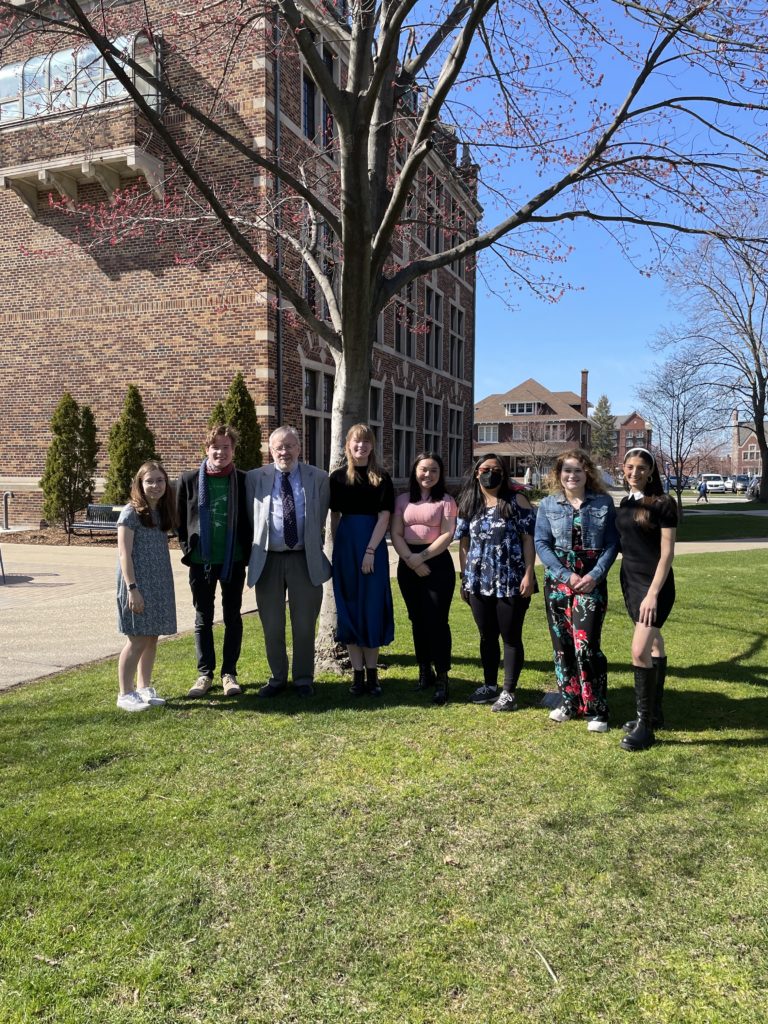
- Erika Brubaker (Class of 1992) Senior Award for Proficiency in Literature – A cash award in memory of Erika Brubaker and presented to a senior English major who has shown exceptional proficiency in the study of literature. Presented by: Dr. Kathleen Verduin Awarded to: Chloe Bartz, Anna Scott, Victoria Miller and Olivia Stebbins
- Erika Brubaker (Class of 1992) Awards for Promising Achievements in the Study of Literature- Up to ten awards in memory of Erika Brubaker for declared English majors or minors who are at least one year from graduation and who have shown exceptional promise in the study of literature. Presented by: Dr. Stephen Hemenway Awarded to: Carole Chee, Piper Daleiden, Eileen Ellis, Hope Laurencelle, Grant McKenzie, Kallen Mohr, Andrew Silagi, Hannah Zeilbeck, Anna Hammond, and Adelyn Wilcox
Pictured left: “Doc Hemenway” and some of the Brubaker Awardees in front of a tree planted in memory of Erika Brubaker (Class of 1992).
- The John D. Cox Award in Shakespeare Studies – The John D. Cox Award in Shakespeare studies was established in 2016 in honor of John Cox, a Hope alumnus (1967) and a distinguished scholar and teacher in the Hope English Department from 1979 until his retirement in 2015. The Award recognizes Shakespeare and scholarship, both of which were important in Cox’s career. Presented by: Dr. Marla Lunderberg Awarded to: Olivia Stebbins and Grant McKenzie
- William B. Eerdmans’ Prizes – Begun in June 1951, the William B. Eerdmans’s prize is awarded to the student judged best in creative writing and poetry, and another awarded to the student judged best in creative writing and prose. Presented by: Dr. Susanna Childress Awarded to: Claire Buck (Poetry) and Emma Compton (Prose)
- The Sandrene Schutt Award – Sandrene Schutt Award for Proficiency in the Study of English Literature was established in 1967 in honor of Sandrene Schutt, English teacher at Grand Haven High School for 37 1/2 years. This award is presented to the senior who has shown proficiency in English literature and expresses an intent to enter the teaching profession in this field. Presented by: Dr. Ernest Cole Awarded to: Morgan Raymond
- Barbara Jo Stephenson Prize – This prize, awarded each semester to the author of the paper selected as the best submitted in the first- year writing course, is given to encourage young writers. Presented by: Dr. Tom Sura Awarded to: Reuban Koemen
- The Louis and Mary Jean Lotz Writers’ Conference Prize – The Louis and Mary Jean Lotz Writer’s Conference Prize in Creative Writing is an annual scholarship that pays tuition, room, and board for a Hope student to participate in the Bear River Writers’ Conference at Walloon Lake (near Petoskey, Michigan). Presented by: Dr. Pablo Peschiera Awarded to: Logan Pitsenberger
- Academy of American Poets –College-wide national poetry award for college students. Funded by Dr. Thomas Werge, Hope class of ’63, and Professor of English at the University of Notre Dame, to encourage excellent student writing and secure permanent membership for Hope College in the University and College Poetry Prize program of The Academy of American Poets. Presented by: Dr. Pablo Peschiera Awarded to: Fara Ling
Opus Soup
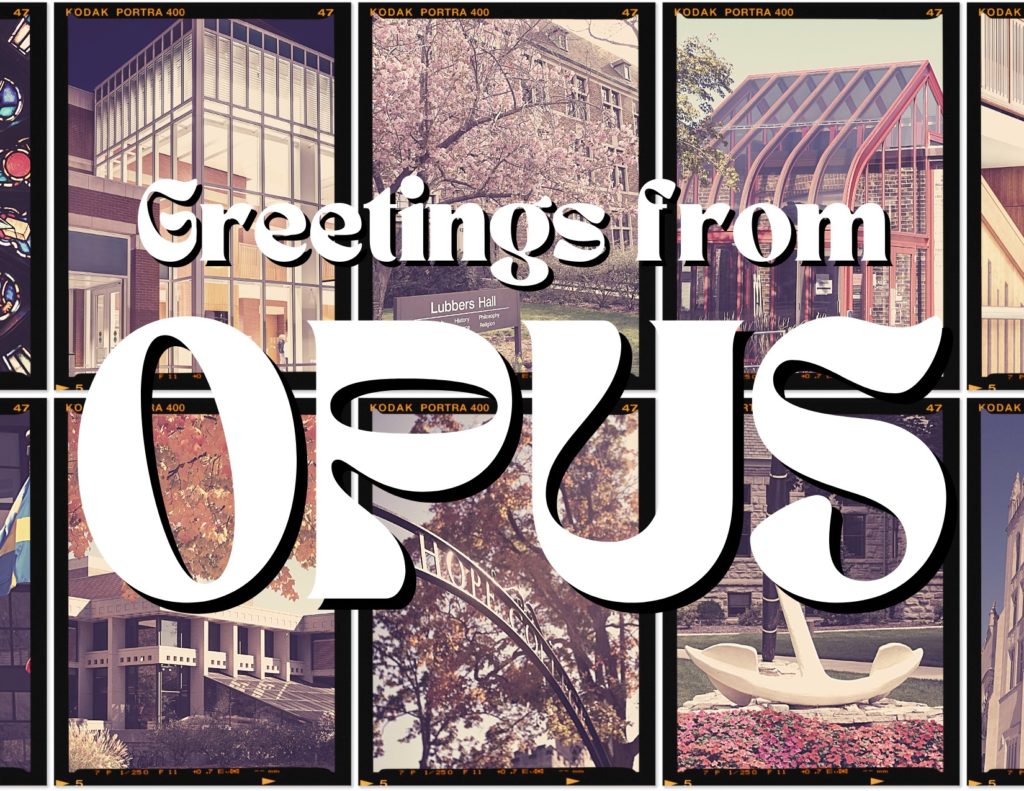
Hello! My name is Adriana Barker, and I am one of the co-editors of Opus Literary & Arts Magazine. I’m a junior, a creative writing and communication double major, a photographer and a former intern for the Jack Ridl Visiting Writers Series. You could say I’m pretty much geeked about all things writing and art, which means I spend most of my time cornering people and talking their ear off about why Opus is the best thing ever.
This spring, Opus has built on last semester’s incredible growth, and we are incredibly excited to celebrate our new issue in a few weeks. Opus Soup is the semesterly celebration of the new issue of Opus – there’s food, copies of the new book, poetry/prose readings from our talented writers, and artist talks from our fabulous visual artists. It’s a huge family reunion, basically, of the whole artsy-writerly community at Hope. We all squirrel ourselves away into our classes and extracurriculars throughout the year so it’s great to have one big event where we can all see and celebrate one another. (And, let’s face it, most of us are introverts, so we can really only handle a few social events like this during a semester.)
In this blog post I want to give y’all a sneak peek into our upcoming issue by sharing the editor’s letters that will appear in the book. Violet Peschiera and I both wrote our own letters this year, and in them we share the things we love about Opus and what contributed to making this semester so awesome – and I get emotional about Violet graduating. But before you read those, some important business.
This semester’s Opus Soup will be held at
6 PM on Wednesday, April 27th, in Winants Auditorium (Graves Hall).
If you haven’t yet, please RSVP to attend Opus Soup! The link for guests (everyone who is not a published artist) is here: https://forms.gle/c6xv2uPaKmh96vD17. Even if you won’t be able to attend for the entire event, please take the two seconds to let us know you’re coming.
And! If you aren’t following Opus on every social media platform possible, what are you doing?
- Our Instagram is @hopecollegeopus
- Our Twitter is @HopeCollegeOpus
- You can find us on Facebook at https://www.facebook.com/hopecollegeopus.
And please check out our brand-new website, opus.hope.edu! Violet and I spent all of last semester working on it, and we are super proud of it and excited to see it flourish!
Okay, okay. I won’t delay any further. Here are the editor’s letters for Opus Spring 2022.
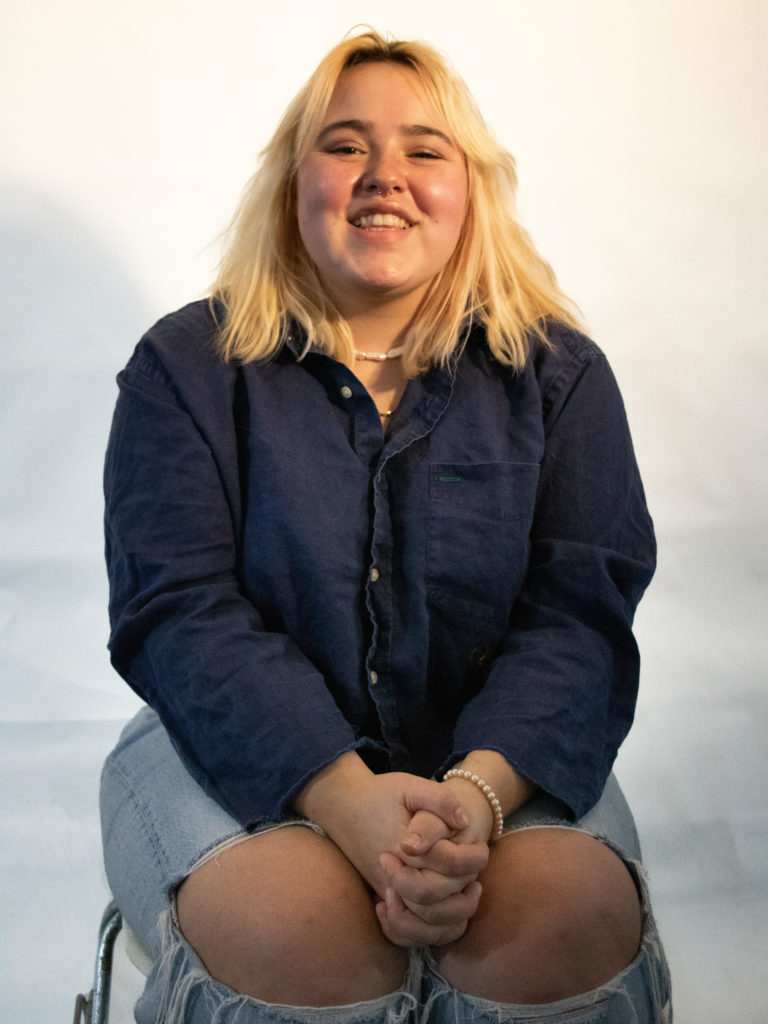
A Letter from Violet Peschiera
Let me start by saying that Opus has brought me many friendships that have shaped me as a person and my career at Hope College. This is my fourth semester being a co-editor for Opus and my seventh semester as a member of the Opus Staff.
Opus has given me a creative space that I think is uniquely Hope-ish. I don’t think there is an undergraduate arts and literary magazine like ours anywhere else. Hope’s liberal arts education allows us to see work from various backgrounds and majors. Every semester Opus has public meetings that are open to anyone from campus, and we critique work that is from all types of artists and all types of mediums. Then once each piece has been looked at, we contact each artist and give them the critique from meetings, whether they were at the meetings or not, so that we are able to foster a progressive and growing artistic community.
For this semester’s cover and book design I took a very personal approach. Earlier in the semester I was browsing an antique store and stumbled upon some postcards from the 1900s to 1970s. It was a really great way to peek into history and see what people had kept as souvenirs. My best friend described this issue as my last letter to Opus, so I took that idea and ran with it. I see this as a souvenir and letter to myself and Opus – the design is inspired by old Opus issues and the postcards I loved. The design is a way to reflect on my past work from Opus and play with the new format in a way I find exciting.
Opus is wonderful because it works outside of the classroom critique atmosphere. We as editors strive for open and honest communication in all of the spaces we inhabit. Opus has allowed me to really build my skills as an editor and artist, but also as a mentor outside of the classroom. It is exciting to see conversations from Opus bleed into the critiques in my art classes.
I have had the privilege of working with many editors who have shaped my understanding of art and my own artistic work. I am grateful to each staff member who has helped me along the way of my journey – thank you to Julia Kirby for starting me on this journey and to the editors that follow for carrying it on after me. I am especially indebted to this semester’s staff for keeping up with Adriana and I in what has been a whirlwind of a semester. I will miss Opus and the community that has flourished around it. This magazine is the last one I will design for Opus, and I see it as a postcard to my past self. A remembrance of all the love and support that Opus has given me.
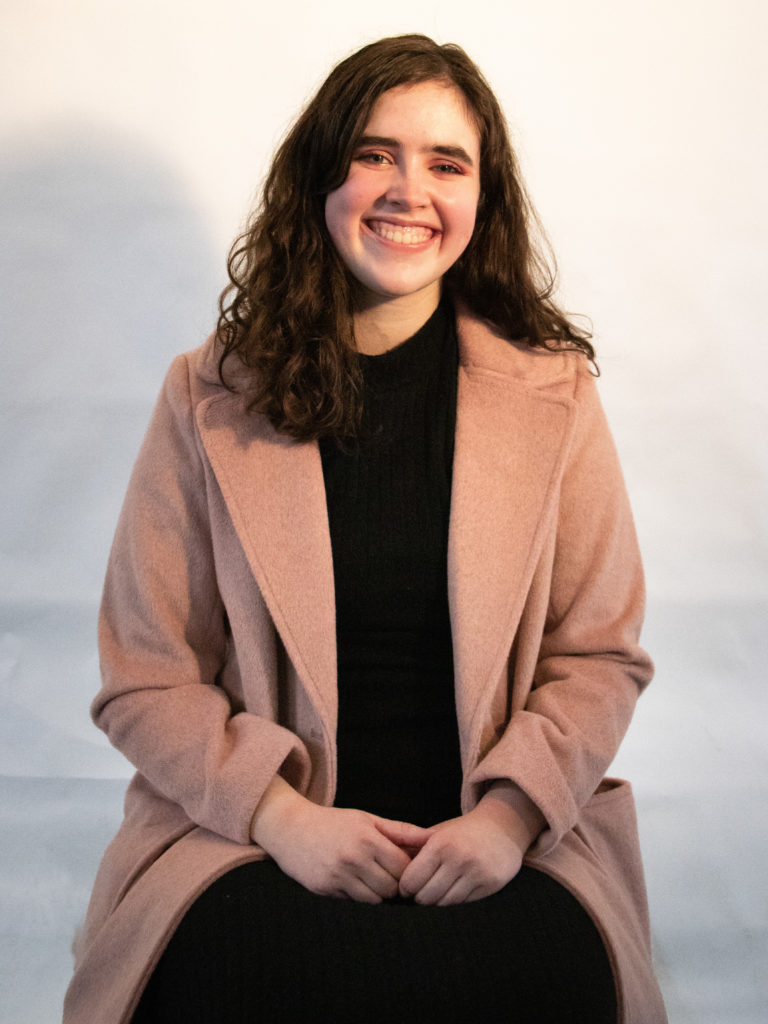
A Letter from Adriana Barker
Those of you who know me personally can attest that I cannot stop talking about Opus, so I have a little space on this page to ramble more about why I love Opus so much and the things that make this issue so cool.
I’m going to start with something I usually distance myself from – numbers. (Hey, I’m a Creative Writing major, I’m legally obligated to hate math.) In this book, you will find 41 people published. We had 45 poets, 29 visual artists, and 13 prose authors submit work. We looked at 130 poems, 103 visual art pieces, and 15 prose pieces for a grand total of 248 submissions. I am in love with our artsy-writerly community. Everyone is so talented and we are lucky to be able to steward your submissions.
This semester, we had a bunch of new friends join us at Opus meetings! Our seven contributors brought their unique taste and opinions to our meetings, and we were blessed by their presence. We also added some friends to our editorial staff. To our whole team: Katie, Emma, Rebekah, Kallen, Krystyna, and Rachel – thank you so much for your hard work and dedication to the craziness that was Opus this semester. We very literally cannot do what we do without y’all.
Across the pages of this book you will find work that ranges from abecedarian poetry to glitch art. There’s a painting made with a hammer, there’s a short story about a space sailor, there’s a charcoal and graphite rendering of the DePree basement hallway, and there’s a script for a satirical nature documentary. What I love about Opus is that we get to highlight all of this amazing work and cheer on the fabulous students who are creating it.
Speaking of fabulous students, I have to take a little time to write about my amazing Co-Editor, Violet. I can truly say there is nothing more amazing than getting to work side-by-side with someone you look up to. I didn’t know what to expect coming into this role, but Violet from the beginning was someone I could share my honest fears, hopes, and ideas with. Our partnership has brought with it some amazing steps for Opus – we built a freaking website, y’all – and I am incredibly proud of where we have brought this organization in such a short time.
I love Opus, and I love this edition. As always, I can’t wait to do it again next semester!
Adriana Barker
Fall 2022 Course Listings
For a complete list of upcoming classes or to see course details, including dates, times and professors, please see the Registrar’s course schedule.
